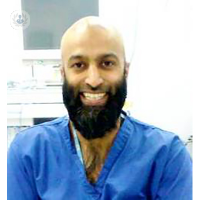10 top tips to prevent sports injuries
Written in association with:As summer approaches, you may have the urge to get out and do more sports, or you may want to improve your fitness ready for the summer holidays. With the football World Cup approaching, more people will be out playing football, and watching the Wimbledon tennis championship sees more people working on improving their tennis game. Whatever your sport, there are some things you should consider to try to avoid injuries, which could put an end to your summer of sport.
Sports injuries are common, however there is a lot you can do to minimise the risk. Leading consultant orthopaedic surgeon, and specialist in sports injuries, Mr Ziali Sivardeen gives 10 tips for avoiding injuries.

- Make sure you really understand the sport you are doing. If it’s a new sport, do a little research beforehand, or ideally get some lessons.
- If you are concerned about any issue related to your health, always make sure you see a doctor before you start, and get the OK to take part. Even if you have a minor ‘niggle’ or injury, it can get worse or lead to further injuries. It is not worth the risk to go ahead regardless.
- Technique is very important. Make sure you learn the technique of the sport you are playing, such as shot technique, standing and balancing in sports like skiing, and make sure you use the correct equipment to avoid injury.
- Wear clothing and equipment that fits the body properly. Parents often buy clothing and equipment that is too large for their children, so that they can grow into it. Ill-fitting equipment has the potential to cause injury.
- Warm up! It is vitally important to warm up fully before doing any sports. This includes cardio exercise, and stretching all parts of your body that you will use, including your back and your core.
- Make sure you know the surroundings. Many injuries happen in places that are thought to be safe, but other people playing with you or nearby may fall or lose control and hit you, causing injury.
- Drink water! Any sport played in hot or cold weather will lead to you sweating and losing water. As such, it is really important to drink plenty of water, and stay hydrated. Ideally take drinks with electrolytes added and avoid alcohol.
- Increase the activity gradually. Do not try and do too much too quickly.
- Listen to your body. If something is not right, then take it easy, or stop. Don’t carry on regardless.
- Remember that cool down is as important as warm up. The cool down period helps your heartbeat return to normal, your muscles to relax, removes any waste products, and replaces them with oxygen and nutrients.
If you do have a sports injury, or would like a specialist to take a look at an old, niggling injury, you can make an appointment with a sports injuries specialist here.


